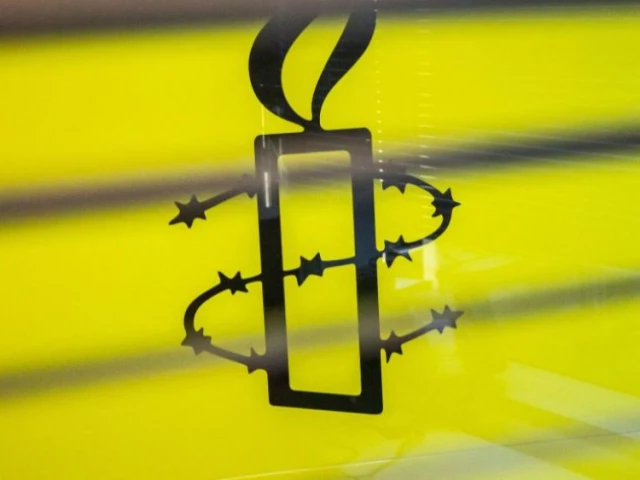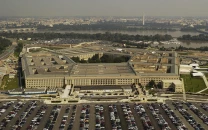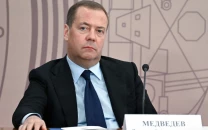Russia accuses Amnesty of backing extremists, spreading ‘Russophobia’
Russia says international rights group members supported ‘extremist’ groups and acted as ‘foreign agents’

Russian authorities have designated Amnesty International as an “undesirable” organisation, accusing the global human rights group of spreading anti-Russian sentiment and supporting extremist causes, in the latest move targeting critics of the Kremlin.
In a statement released on Monday, the Russian Prosecutor General’s Office alleged that Amnesty’s London headquarters operated as a “centre for the preparation of global Russophobic projects” financed by Western allies of Ukraine. State media cited officials accusing the group of attempting to intensify military confrontation in the region since the start of Russia’s full-scale invasion of Ukraine in February 2022.
According to the Prosecutor’s Office, Amnesty International has advocated for Russia’s political and economic isolation and supported organisations classified as extremist under Russian law. Authorities claimed the group had also financed activities of so-called “foreign agents” — a term used by Moscow to discredit individuals and entities deemed hostile to the state.
Amnesty International has not yet responded to the accusations.
The “undesirable” designation effectively bans Amnesty from operating in Russia, and anyone found cooperating with or promoting its work — including by sharing its reports on social media — could face criminal prosecution.
Russia now lists 223 organisations as “undesirable,” including prominent watchdogs and media outlets such as Transparency International, Latvia-based Meduza, and US-funded Radio Free Europe/Radio Liberty.
Founded in 1961, Amnesty International is known for documenting human rights violations globally and campaigning for the release of political prisoners. The organisation was awarded the Nobel Peace Prize in 1977 for its efforts to combat torture and promote adherence to the Universal Declaration of Human Rights.
In recent years, Amnesty has reported on abuses in multiple conflict zones, including the war in Ukraine, alleged war crimes in Gaza, systemic discrimination in Israel, and atrocities in Sudan.
The move against Amnesty comes amid a wider crackdown on civil society and rights groups in Russia, which has accelerated since relations with the West deteriorated following the war in Ukraine and NATO’s expansion.
Authorities have increasingly used “foreign agent” and “undesirable” labels to stifle dissent, shut down independent media, and limit the activities of minority and civil society groups.
The announcement also coincides with ongoing diplomatic efforts to end the conflict. US President Donald Trump was scheduled to hold separate calls with Russian President Vladimir Putin and Ukrainian President Volodymyr Zelenskyy on Monday.
This followed the first direct talks in three years between Russian and Ukrainian delegations in Istanbul on Friday. While no breakthrough was achieved, both sides agreed to a major prisoner swap involving 1,000 detainees — the largest since the war began.
However, significant differences remain. A senior Ukrainian official said Russia is demanding that Ukrainian forces withdraw from all regions claimed by Moscow — a condition Kyiv has firmly rejected, especially given that Russia does not have full control over those territories.























COMMENTS
Comments are moderated and generally will be posted if they are on-topic and not abusive.
For more information, please see our Comments FAQ